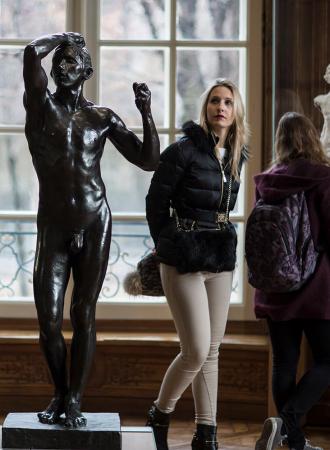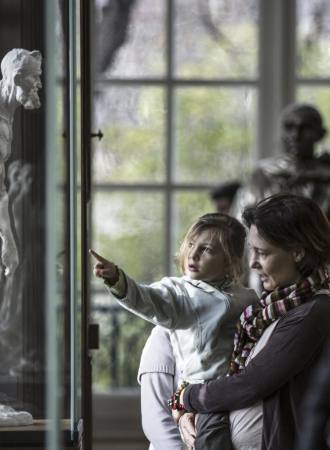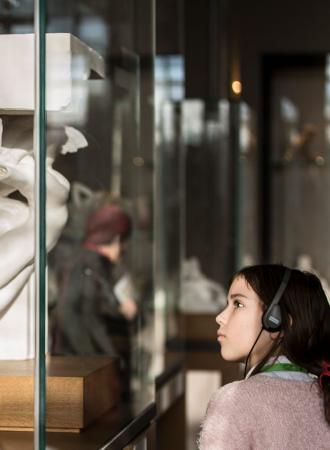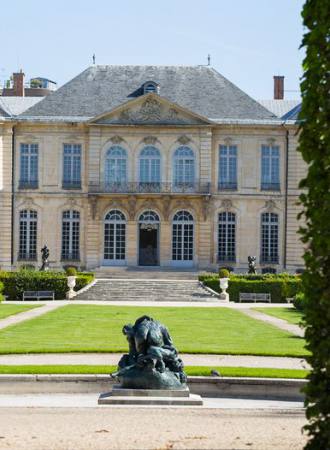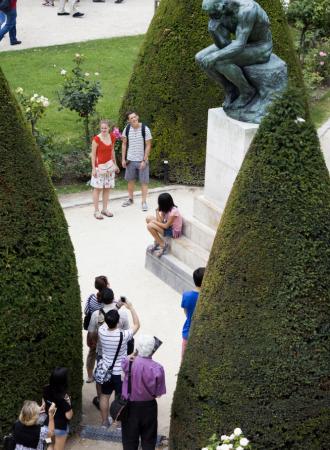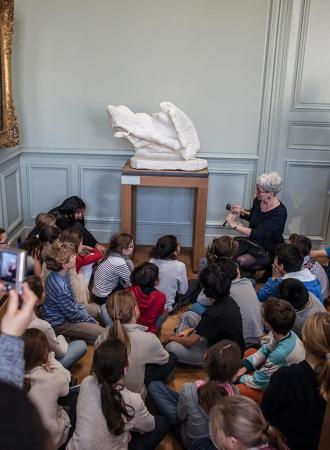Search the site
Model for the Monument to Victor Hugo, with Meditation and the Tragic Muse
Auguste Rodin (1840-1917)
In 1889, the French state commissioned Rodin to create a monument for the Paris Panthéon in honor of Victor Hugo, who died in 1885. Rodin had met Hugo in 1883 to work on a bust portrait of the great French author, but for the monument he decided to create a full-body sculpture showing him seated among the rocks of Guernsey with one arm outstretched―a heroic nude figure with classical-style drapery, representing the poet in his political exile.
Rodin’s first models for the monument were rejected by the authorities. From 1890 onwards, he worked on two projects: the seated figure he had initially planned, which was unveiled in the gardens of the Palais-Royal in 1909, and another study for the Panthéon, showing Victor Hugo standing. This figure, called The Apotheosis of Victor Hugo, never came to fruition. In 1897, he presented his final model, true to his first idea of the poet in his Guernsey exile seeming to gaze at the stormy sea, but portrayed nude, with drapery over his left leg; this gave a heroic quality to the figure, despite his depiction as an old man. He is accompanied by two female allegories (rather than the original three): The Tragic Muse hovers above him, while Mediation (or The Inner Voice) stands behind.
Locate the artwork in the museum
Musée Rodin - Meudon, plaster gallery
We cannot guarantee the presence of all our artworks; some may be out on loan.
Dimensions :
H. 162 cm; W. 203 cm; D. 115 cm H. 148 cm; W. 75 cm; D. 53 cm H. 69 cm; W. 110 cm; D. 115 cm
Materials :
Plaster
Inventory number :
S.05721, S.05415, S.02527
Credits :
© Photographic Agency of musée Rodin - Jérome Manoukian
Additional information
Iconography
- Model for the Monument to Victor Hugo, with Meditation and the Tragic Muse(zip, 1009.5 ko)

